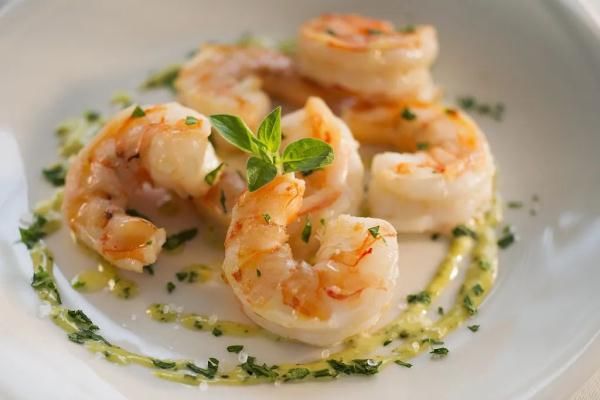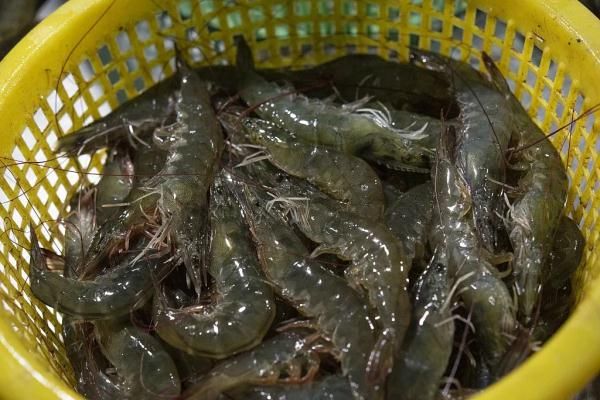Shrimp is delicious and has no fishbone concerns, and is a good source of high-quality protein for all ages.
But people don’t seem to be very concerned about eating shrimp. Some people often say that “shrimp is a ‘hair thing’ and can’t be eaten casually.” Are these various claims true or false?

4 “doubts” about eating shrimp
Answer all at once
1. Shrimp is a “hair thing”, can’t you eat it when you are sick?
Many people may have heard that shrimp and crabs cannot be eaten when you have a cold or when you have wounds on your body. They are “hair objects”, and eating them will make it harder to heal, and may even worsen.
In fact, in modern medicine, there is no concept of “fat”. Some people feel uncomfortable after eating shrimp and crab. The reason is likely to be allergies, or the ingredients are not clean and fresh.
If you are not allergic to shrimp, and the ingredients are fresh and hygienic, then eating some high-protein, low-fat shrimp after you get sick is actually helpful for wound healing, disease recovery, and immunity enhancement.
2. Shrimp head black is heavy metal exceeding the standard?
The shrimp head contains most of the organs of the shrimp, and its heavy metal content is indeed higher than that of the shrimp meat, but its blackening has nothing to do with heavy metal pollution.
Shrimp head contains tyrosinase, under its action, tyrosine can gradually form black substances such as melanin and pheomelanin, which is a normal enzymatic reaction. Moreover, even under refrigeration, freezing, etc., tyrosinase can still be blackened.
In addition, some shrimp may have black hair because they just ate some dark algae before they were caught, so don’t worry too much.
However, having said that, shrimp heads contain stomach, gills and other organs after all, which are prone to accumulate many harmful substances and bacteria, so it is not recommended for everyone to eat them.
3. The shrimp line is very dirty, must it be removed?
The line on the back of the shrimp is the digestive tract of the shrimp, and the blue-black material inside is the residual excrement. In theory, shrimp line is really dirty, but if it is thoroughly cooked through high temperature cooking, it will not pose a threat to health except for the taste is not good.
So, whether to go to the shrimp line or not is mainly up to the individual. If you don’t mind, you can cook it and eat it directly; if you are more particular, you can remove it when handling the shrimp.
4. Eating small shrimp is very calcium?
The calcium content of shrimp peel can reach 991 mg per 100 grams, which is much higher than that of milk (104 mg/100 grams). If only from the “quantity” point of view, it is indeed an excellent calcium supplement.
However, ordinary dried shrimp is difficult to chew and digest. After eating, the calcium inside is difficult to be absorbed by the human body. Excessive consumption may also cause gastrointestinal discomfort.
As for those sun-dried small shrimp skins, while they are convenient to eat, they are surprisingly high in sodium! Therefore, it is not a good choice for calcium supplementation.
Nutritious and delicious
“Eat” out this way
Shrimp meat is high in protein, low in fat and low in calories. It is also rich in minerals such as calcium, potassium and phosphorus. The content of polyunsaturated fatty acids such as EPA and DHA is also quite good. The iodine content is relatively low in aquatic products. It is a kind of food with high nutritional value and suitable for the whole family.
However, there are 3 things you need to keep in mind if you want to taste the deliciousness of shrimp.
1. Don’t buy three kinds of shrimp
Don’t buy “red head shrimp”;
Don’t buy “U-turn shrimp”;
Don’t buy “soft shrimp”.
Shrimp selected based on these three points are generally fresh.

2. Wear gloves when handling shrimp
Flesh-eating bacteria may be attached to fish, shrimp, crabs and other aquatic products. “Flesh-eating bacteria” actually includes a variety of bacteria that can combine to produce a large number of toxins, infect and dissolve subcutaneous fascia and fat. People with weak immunity are more difficult to resist. If the treatment is not timely, it may lead to systemic poisoning, multiple organ failure, and later disability and mortality rates are extremely high.
Many patients are infected by stab wounds from the shells and pincers of shrimps and crabs, so everyone must wear gloves when touching and handling these ingredients. If you are injured and have abnormal wound pain, general weakness, or muscle soreness, you should go to the hospital immediately.
3. Remember to add some ingredients to the water
Shrimp meat has a certain fishy smell. When boiling, you need to add some spices to remove the fishy smell and increase the fragrance. Ginger and pepper are good choices. In addition, the beer is fragrant and has the effect of removing fishy smell. You can also put a little while the shrimp is in the pot.
The shrimp to be fried also need to be marinated in advance to remove the fishy smell. You can put the shrimp in a large bowl, put some shallots, ginger slices and cooking wine in it, and marinate for about 5 minutes.
(CCTV goes home for dinner)